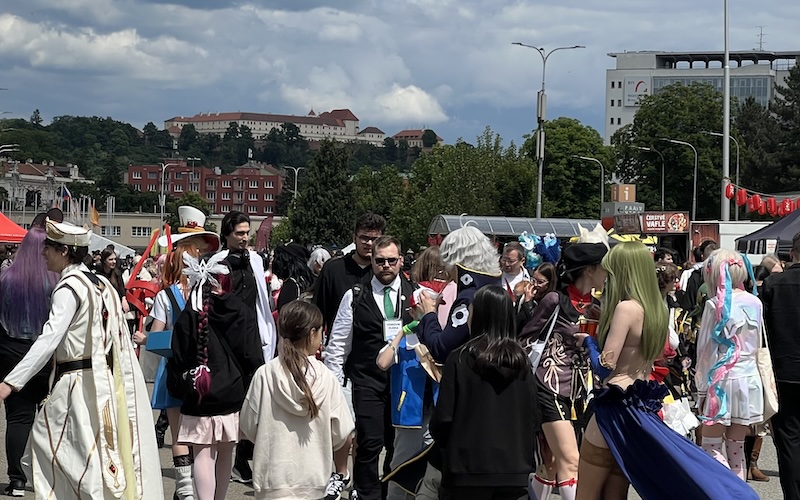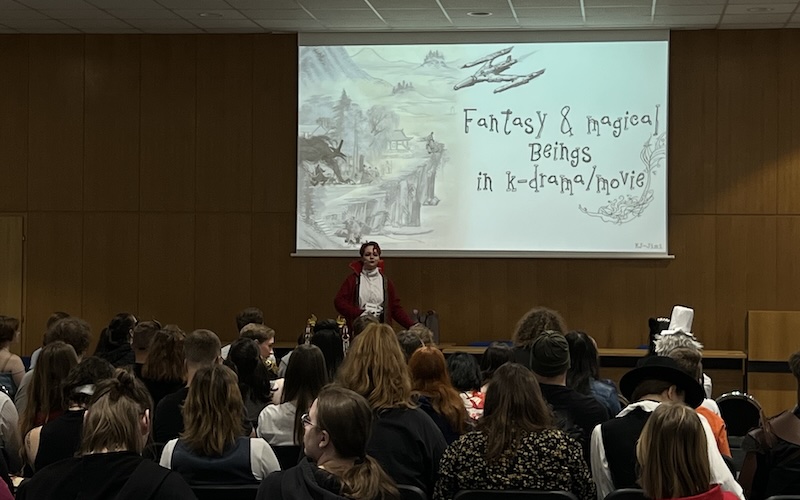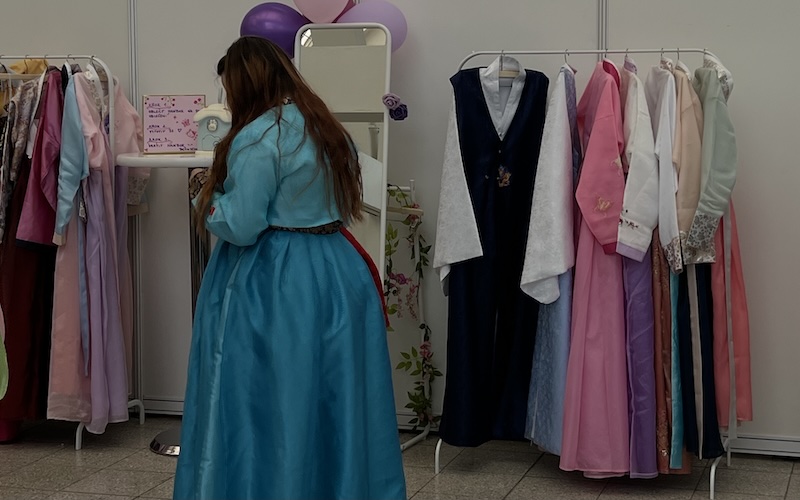Every spring, the second-largest city in the Czech Republic, Brno, transforms into a true portal to the world of anime, fantasy, and Asian pop culture. Hundreds of cosplayers, artists, dancers and fans gather from across the country and abroad to attend the oldest anime convention in the Czech Republic.
I had heard about this festival before, but this year I finally decided to go — and found myself at the heart of a large-scale event that goes far beyond just anime.
In 2025, the country’s biggest celebration of Asian pop culture marked its 20th anniversary — and did so in style. The anniversary edition of Animefest, held from May 23 to 25 at the Brno Exhibition Centre, drew around 40,000 visitors and offered a rich and diverse program.

Although Animefest began in 2004 as a convention focused solely on Japanese culture, over the years it has broadened its scope to embrace other East Asian pop-culture trends as well. The three-day program was packed with events that appealed not only to anime and manga fans, but also to anyone interested in comics, sci-fi, fantasy, gaming, fashion, art, dance or cosplay.
And here’s the reason I ended up at Animefest this year — for the first time in its history, Korea was officially represented in the festival's lineup, with the support of the Embassy of the Republic of Korea in the Czech Republic.
One of the highlights was an evening concert by Sinnoi, a genre-blending group combining traditional Korean music, jazz improvisation and electronics. For an audience used to pop formats, the performance was a cultural revelation. It proved that Korean music is not just K-pop — it also draws from deep-rooted traditions reimagined for today.
Another exciting first was the K-Pop Dance Off competition, which attracted a large number of participants and plenty of buzz among dance crews. For the winners, it was a chance to take their skills international — they’ll represent the Czech Republic at the European K-Pop Dance Fight Fest in Italy.
Korean culture was also showcased through a series of well-attended lectures and workshops covering topics such as K-pop, K-dramas, idol culture and Korean dance. The interest was enormous — rooms were packed, and audiences were actively engaged, asking thoughtful questions and sparking discussions.
A fascinating deep dive into the history of Korean pop culture was presented by Koji Owlynn, who explained how cultural and social processes shaped Korea’s music industry and gave rise to the global phenomenon known as the Hallyu.
Festival emcee and K-pop enthusiast Alfred Jäger, known for his work with FestDance, offered an insightful look into the often-hidden side of idol life — the challenges, sacrifices, and uncertainty that come with the spotlight.

One of the most memorable and unique sessions was led by Veronika “Jimi” Sladká, who shared her knowledge of fantasy and supernatural characters in Korean films and dramas. Drawing from her professional experience in Korea’s art scene, she explained why, for example, zombies in K-dramas look surprisingly fresh, and vampires can walk in sunlight — in contrast to Western tropes.
What made her talk stand out was her charismatic, engaging presentation style and sharp sense of humor. I personally found her lecture absolutely delightful — it was easy to follow, genuinely interesting, and Jimi immediately connected with the audience.
Dorota “Dori” Vasilovčíková, a choreographer and experienced dance competition judge, shared practical tips for both new and seasoned dancers. Her lecture offered valuable guidance on how to plan your first K-pop cover performance and what it takes to stand out on stage — from choreography and stage presence to impressing judges and audiences. She gave a realistic and inspiring overview of building a dance career in the fast-paced K-pop scene.
Beyond the main program, the festival’s exhibitor alley offered plenty of Korean flavor — from trying on traditional hanbok and browsing K-beauty products to grabbing a bite of popular Korean street food.

And of course, there was a nod to “Squid Game”: visitors had the chance to play gonggi, a traditional Korean game with pebbles that gained international recognition after the series took the world by storm.
This impressive scale and richness of the program is the result of the tremendous effort and dedication of the organizers, who work tirelessly to make Animefest a key platform bringing together fans and professionals passionate about Asian pop culture.
All in all, Animefest 2025 offered a deeper look into the many layers of Korean culture — from classical motifs and cinema to contemporary music and dance — bringing fans and experts together in one space and opening up new opportunities for connection, learning and creativity.
How about this article?
- Like4
- Support6
- Amazing0
- Sad0
- Curious0
- Insightful0


